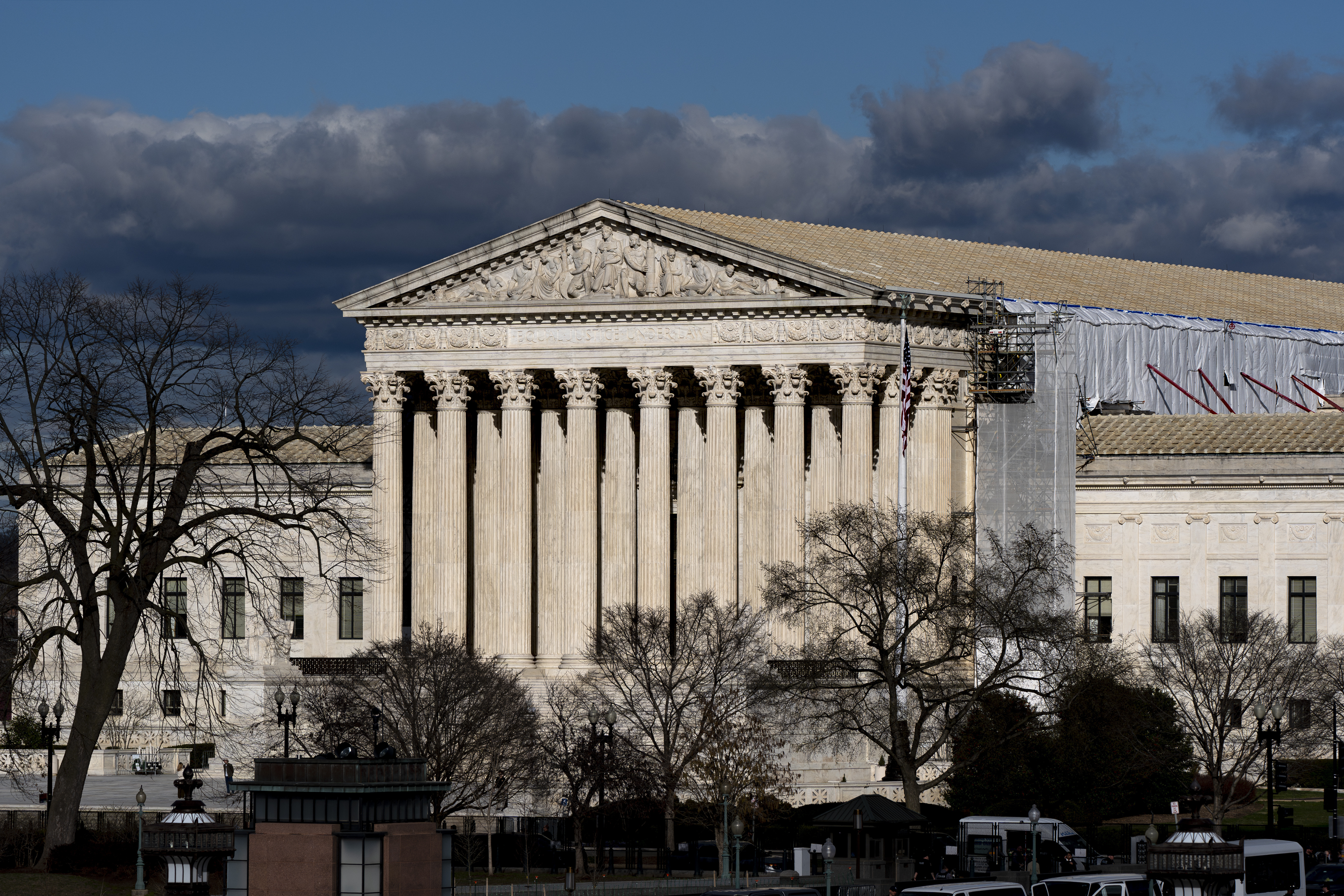Lawmakers return to Congress this week after a two-week recess with President Barack Obama’s second-term agenda of gun control, immigration and deficit reduction high on the agenda.
Obama planned to speak at the University of Hartford in Connecticut on Monday to continue trying to pressure Congress to move ahead on gun control legislation. After the address he plans to bring on Air Force One families of nine of those killed in the Sandy Hook Elementary School shooting tragedy to Washington, NBC News reported.
For full U.S. and political news coverage, visit NBCNews.com.
Talks between two influential senators have emerged as the most promising route for a bipartisan breakthrough on expanding federal background checks for gun buyers, a pivotal part of Obama's plan for combating gun violence.
One possibility being discussed by Sens. Joe Manchin, D-W. Va., and Pat Toomey, R-Pa., would involve expanding background checks to gun show sales and firearms transactions online, Senate aides said. Sales between close relatives and temporary transfers between hunters may be excluded, but an agreement along those lines could give Obama's guns agenda a significant boost and would be a major expansion of the current system, which covers only sales handled by federally licensed gun dealers.
The agreement remains a work in progress and could change, said Senate aides who spoke on condition of anonymity to describe private talks.
But because of their credentials, an accord between the two lawmakers could make it easier for gun control advocates to win crucial support from wavering moderate Democrats and from GOP senators, who have largely opposed much of Obama's push on guns.
U.S. & World
Manchin is a moderate and Toomey is a conservative, and both senators have received A ratings from the National Rifle Association, which has opposed the major parts of Obama's plan, including his call for nearly universal background checks.
Sen. Richard Blumenthal, D-Conn., said Monday that a compromise on gun legislation was "feasible and possible and is also necessary and desirable."
"Senator Toomey's involvement along with Senator Manchin, two very credible and experienced senators, is very important to achieving that kind of common ground," Blumenthal told CNN.
Senate Majority Leader Harry Reid, D-Nev., has been hoping to begin debate on Democrats' gun legislation Tuesday. That could be delayed if Manchin and Toomey seem close to an agreement but need more time to complete one.
Also high on Congress' agenda is immigration, where a decisive moment is approaching.
Bipartisan groups in the House and Senate are expected to present legislation as early as this week aimed at securing the U.S. border, fixing legal immigration and granting legal status to millions who are in the United States without authorization. That will open months of debate on the politically combustible issue, with votes by the Senate Judiciary Committee expected later this month.
The House returns Tuesday and initially plans to consider a bill preventing the National Labor Relations Board from issuing rules until a dispute over administration appointees is resolved.
Lawmakers will also devote time to the 2014 budget that Obama plans to release Wednesday. It calls for new tax increases, which Republicans oppose, and smaller annual increases in Social Security and other government benefit programs, over the objections of many of the president's fellow Democrats.
Advocates' hopes were high for congressional action on gun restrictions following the December massacre of 20 first-graders and six staffers at an elementary school in Newtown, Conn.
But momentum seems to have dipped in recent weeks and it remains unclear whether the Democratic-run Senate will be able to approve any curbs considered major by gun control groups. An Obama-backed assault weapons ban seems all but dead, and a prohibition against ammunition magazines carrying over 10 rounds, also supported by the president, seems unlikely to survive.
Without support from some Republicans, a significant expansion of background checks won't be possible because there are only 53 Democrats in the Senate plus two Democratic-leaning independents. Conservative GOP senators have promised to use delaying tactics against gun legislation, which would take 60 votes to end.
Federal background checks are currently required only for transactions handled by the roughly 55,000 federally licensed firearms dealers; private sales such as gun-show or online purchases are exempt.
For weeks, Manchin has been part of an effort to craft a background check compromise, along with Sens. Chuck Schumer, D-N.Y., and Mark Kirk, R-Ill. Schumer focused his efforts on conservative Sen. Tom Coburn, R-Okla., but those talks sputtered over Schumer's insistence on — and Coburn's opposition to — requiring that records be kept of private gun sales.
"I'm still hopeful that what I call the sweet spot — background checks — can succeed," Schumer said Sunday. "We're working hard there."
Proponents say background checks and records — which are currently retained by gun dealers, not the government — are the best way to ensure that would-be gun buyers' histories are researched. Opponents say the system is a step toward government files on gun owners and say criminals routinely skirt the checks anyway.
Asked about the potential compromise, Manchin spokesman Jonathan Kott said, "My boss continues to talk to all of his colleagues." Toomey spokeswoman E.R. Anderson said she could provide no information.
Sen. John McCain, R-Ariz., urged fellow Republicans to allow debate to go forward without a filibuster, even as he declined to express support for a background check bill.
"The purpose of the United States Senate is to debate and to vote and to let the people know where we stand," McCain said, appearing alongside Schumer on CBS' "Face the Nation."
With or without an agreement, the Senate gun legislation would toughen federal laws against illegal firearms sales, including against straw purchasers, those who buy firearms for criminals or others barred from owning them. The legislation also would provide $40 million a year, a modest increase from current levels of $30 million, for a federal program that helps schools take safety measures such as reinforcing classroom doors.
In addition, the gun bill contains language by Schumer expanding background checks to cover nearly all gun transactions, with narrow exceptions that include sales involving immediate relatives. Even without a bipartisan deal, Schumer is expected to expand the exemptions to more relatives, people with permits to carry concealed weapons and others, in hopes of winning more support.



